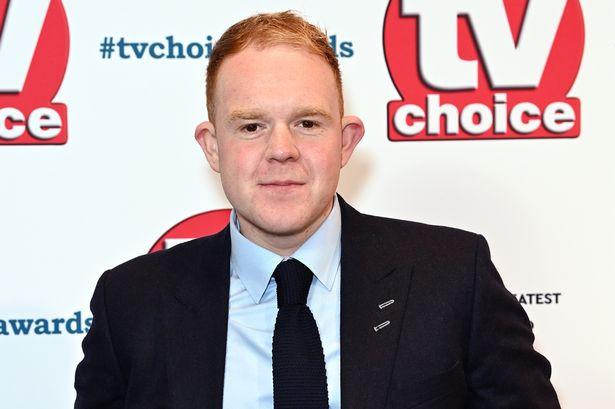Coronation Street's Lisa George has candidly shared her concerns following her departure from the popular ITV series. The actress, known for her role on the soap, has been diagnosed with NAION - non-arteritic anterior ischemic optic neuropathy, a serious condition that can cause sudden vision loss due to decreased blood flow to the optic nerve. With partial blindness in one eye and limited peripheral vision in the other, Lisa faced a new reality.
Her health scare prompted a career reassessment; Lisa no longer wanted to be pigeonholed as one character. Discussing her situation on Morning Live, she recounted a theatre visit that sparked a realisation: "I'd been to the theatre to see a Shakespeare production and at the end of one of the scenes, there was a blackout - it really was dark. The actors left the set and I thought, oh my gosh, I'm not going to be able to do that. I wouldn't be able to see or get off the stage."
That experience was pivotal for Lisa, who said: "I remember going home that night and it just had a massive impact on me. I remember thinking I wouldn't be able to do theatre again. I had this panic - I've got to get out there. I had spoken to my producer about my fear but in my head, I knew I wasn't going to do it."
Determined to diversify her career, Lisa made the tough decision to leave Coronation Street. "There were things I still wanted to achieve and that's why I decided I needed to do something else. I don't want to be known for one character all my life. I could easily do that, but I thought I needed to get back to my roots," she concluded, reports the Liverpool Echo.
Lisa is resolute in her determination to not let her diagnosis take over her life. She explained: "It put the fear in me. I was really frightened because you just don't know what the future is. I just get on with it, because what other choices do I have. I just have to look at it a different way."
She opened up about how she's had to adapt, mentioning that she's increased the font size on her computer and needs printed materials to be enlarged. Lisa also shared the challenges of her condition - often dropping cups or bumping into furniture within her house.
After dealing with the initial shock and an eye patch that followed three months later, the pain didn't ease. "My right eye was my worst, where I've got more vision damage," she explained. "I was really like, 'Oh my god what's going to happen?' but they were like, 'You can drive with one good eye you'll be fine'."
Lisa has spoken about her fears since quitting Coronation Street. The actress was seen, after 13 years on the famous street, saying her goodbyes at the end of August as Beth Tinker left Weatherfield. She's now preparing to return to the stage as she plays Fairy Godmother in Cinderella at the Wyvern Theatre & Swindon Arts Centre this Christmas.
The former soap star admitted she was fearful about her health after being diagnosed with NAION, non-arteritic anterior ischemic optic neuropathy. This condition can lead to sudden vision loss when there is reduced blood flow to the optic nerve. Lisa is partially blind in one eye and has peripheral vision in the other.
She was left fearful of a return to the theatre world after being diagnosed. Talking on Morning Live, Lisa said: "I'd been to the theatre to see a Shakespeare production and at the end of one of the scenes, there was a blackout - it really was dark. The actors left the set and I thought, oh my gosh, I'm not going to be able to do that. I wouldn't be able to see or get off the stage."
Despite her fears, Lisa has taken the plunge to head back to the stage and is now adamant she won't let her diagnosis ruin her life. She said: "It put the fear in me. I was really frightened because you just don't know what the future is. I just get on with it because what other choices do I have? I just have to look at it a different way."
Lisa also explained to hosts Helen Skelton and Gethin Jones what has been adapted for her in her every day life, inlcuding things on her computer appearing in larger font whilst anything in print also needs to be made bigger for her.
She also revealed that she can often drop cups, thinking she's putting them on the table, that she can trip over easily and regularly bashes into furniture, even in the familiarty of her own home.
Lisa is determined not to let her diagnosis take over her life. She explained: "It put the fear in me. I was really frightened because you just don't know what the future is. I just get on with it, because what other choices do I have. I just have to look at it a different way."
She acknowledged the adjustments she had to make to her daily life, revealing that she has increased the font size on her computer and requires larger print for reading material. Lisa also shared that she often misjudges where things are, leading to her dropping cups after thinking she had put them on the table, and frequently colliding with furniture, even in her own home.
Host Helen Skelton responded positively to Lisa's attitude, saying: "The fact you laugh at yourself will give people hope," while commending her transparency about her struggles. The BBC programme then offered advice to viewers on how they could make similar accessibility adjustments, such as enlarging text on their mobile devices.
"The fact you laugh at yourself will give people hope," commented host Helen Skelton, commending Lisa for her candidness about her struggles. The BBC programme proceeded to inform viewers on ways to enlarge text on their devices, such as mobile phones.
Lisa's story is an inspiration to us all, showing that even in the face of adversity, we can find strength and resilience to keep moving forward.


















